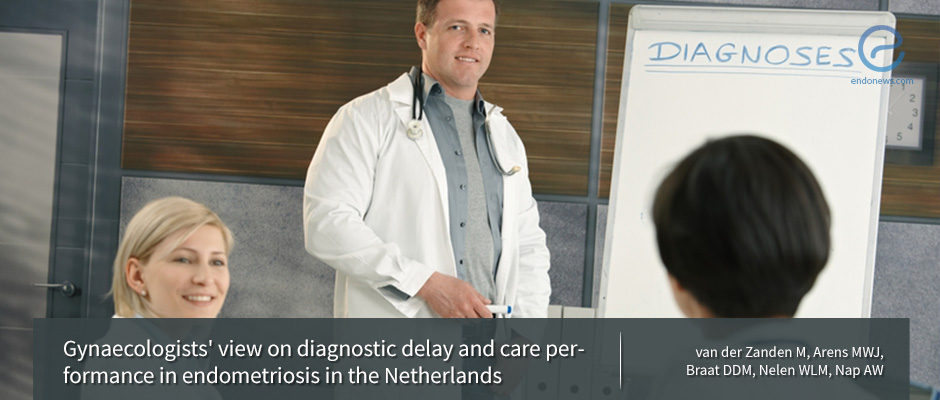Factors related to delay in endometriosis diagnosis
Jan 18, 2019
Could delays in endometriosis diagnosis be avoided?
Key Points
Highlights:
-
Improving knowledge and awareness in both patients and medical professionals, as well as improving collaborations between medical professionals may reduce the diagnostic delay of endometriosis patients.
Importance:
- Diagnostic delay in endometriosis remains a problematic issue.
- The ESHRE guidelines provide recommendations on establishing the diagnosis of endometriosis ‘to improve the knowledge of gynecologists and other clinicians so that the diagnostic delays are avoided.
What's done here:
- Compliance on key recommendations of ESHRE guidelines on endometriosis, and the factors influencing diagnostic delay was aimed in this manuscript by a questionnaire, from the gynecologists’ point of view.
- A total of 99–100% of respondents to the questionnaire agreed with, and 91–100% adhered to, the diagnosis-related recommendations in the ESHRE guidelines.
- A nationwide cross-sectional questionnaire study was conducted among all hospitals in the Netherlands.
- The questionnaire had 56 questions, both multiple choice (n = 38) and open-ended (n = 18), addressing demographic variables related to the organization and the centralization of endometriosis care, current care, a collaboration between medical professionals, and diagnostic delay.
Key Results:
- Diagnostic delay was estimated to be as 42 months. The time from onset of symptoms to diagnosis may even to take up to 12 years.
- The main factors in diagnostic delay according to gynecologists are a lack of knowledge and awareness of endometriosis among patients and medical professionals, as well as limitations in diagnostics and late referral.
- The variability in reported diagnostic delay between different study populations worldwide suggests that factors related to healthcare organization may also be involved.
- Proposed interventions are partly directed at these factors and include
- promoting patient awareness and participation,
- increasing knowledge of medical professionals and facilitating timely referral to a gynecologist.
- These are in line, however, there is relatively low adherence to the guideline recommendations regarding the radiologic assessment of patients with a suspicion of deep endometriosis and their referral to a center of expertise that offers multidisciplinary treatment.
Lay Summary
Dr. Moniek van der Zanden, a gynecologist from Netherlands has recently made a nationwide survey on the impact of key recommendations of the European Society of Human Reproduction and Embryology (ESHRE) guidelines on endometriosis and aimed to assess factors influencing diagnostic delay of endometriosis. The paper was recently published in the journal Reproductive Biomedicine Online.
A nationwide cross-sectional questionnaire study with 56 questions, including 38 multiple choice and 18 open-ended types, was conducted among all hospitals in the Netherlands. This questionnaire addressed demographic variables related to the organization of care, opinion about the centralization of endometriosis care, current endometriosis care, a collaboration between medical professionals and the diagnostic delay.
Among the respondents, almost all agreed with, and 91–100% adhered to, the diagnosis-related recommendations in the ESHRE guidelines.
Overall diagnostic delay was estimated to be as 42 months. Main factors for this delay according to gynecologists’ were lack of knowledge and awareness of endometriosis in both patients and medical professionals, as well as limitations in diagnostics and late referral.
The results of this study indicate that the overall compliance and use of the 2014 ESHRE guideline ‘Management of women with endometriosis’ amongst Dutch gynecologists is high. The recommendations concerning diagnosis are highly agreed with, and adhered to.
Since the diagnostic delay is still a reality, efforts to reduce the diagnostic delay of endometriosis should be aimed at improving knowledge and awareness in both patients and medical professionals, as well as improving collaborations between gynecologists, general practitioners and other medical specialists, and above all, between gynecologists from different hospitals, authors suggest.
Research Source: https://www.ncbi.nlm.nih.gov/pubmed/30366841
endometriosis diagnostic delay ESHRE recommendations survey cross-sectional questionnaire awareness referral compliance collaborarion general practicioners gynecologist

